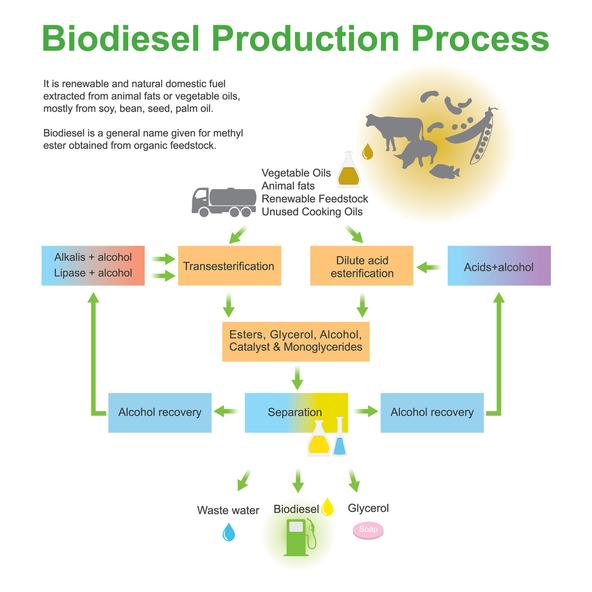BIODIESEL INDUSTRY
Providing Information About the Biodiesel Industry
BIODIESEL PRODUCTION AND MARKETING
Production
The biodiesel industry has grown steadily since the early late 1990’s into to a multi- billion dollar industry employing hundreds of thousands of people. Initially produced from soybeans from the residual oil from soy products processing, it has grown to include many other oil feedstock including waste vegetable oil and animal triglycerides. Commercial production facilities have grown nationwide and worldwide since that time. The industry reached a key milestone in 2011 when it crossed the one billion gallon production mark and by 2015 the biodiesel and renewable diesel market had doubled to more than two billion gallons. In 2016 the market achieved was a record high 2.8 billion gallons. The majority of biodiesel producers in the US are certified to BQ-9000 insuring that most of the biodiesel sold in the US meets the ASTM Standard D6751.
Marketing
Biodiesel is produced through a process called transesterification which combines vegetable oil or animal fats and alcohol to remove the triglycerides to produce methyl esters. The biodiesel can then be burned in any combination with petroleum oil in diesel engines and home heating oil systems.
Once the fuel is produced to the ASTM Standard D6751, it is then stored and distributed through the nation’s fuel distribution system of petroleum marketers. Many of the nation’s marketers are certified to the BQ-9000 standard insuring the majority of fuel continues to meet the required D6751 standard. More information on marketers can be found on the NBB website at www.biodiesel.org/using-biodiesel


